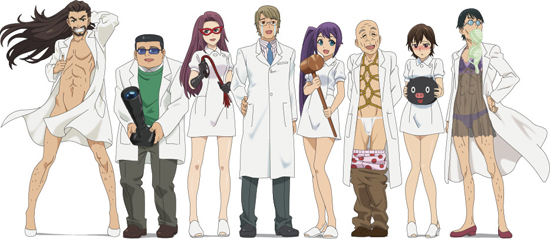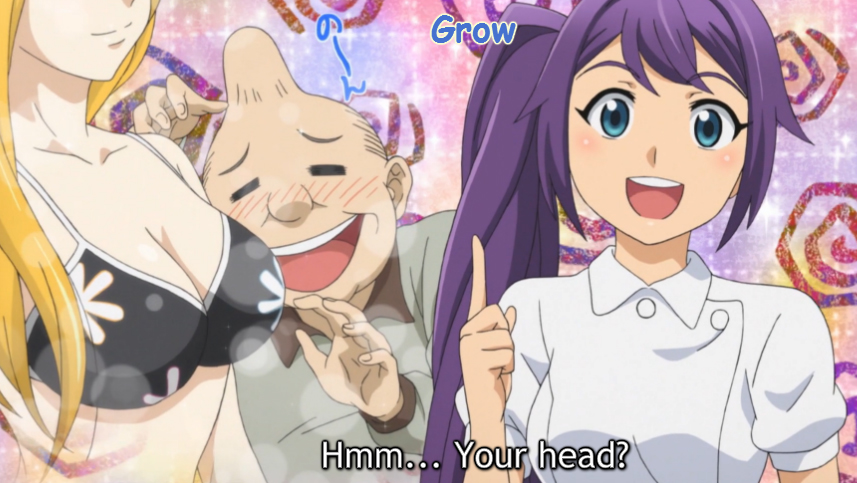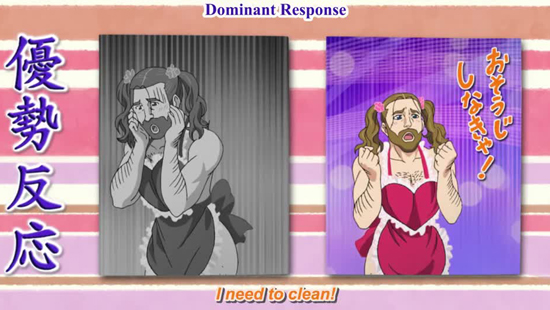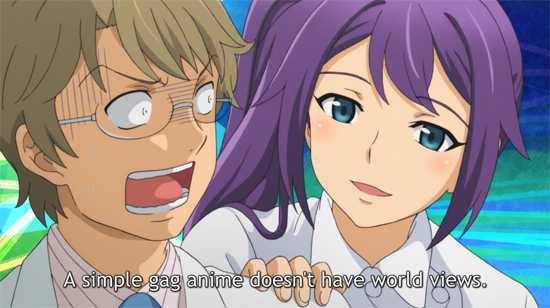
Bored out of your mind? Well, hurry up and crawl back on in there; we’ve got an examination to do! It’s time to explore the wonders, and occasional failings, of the human brain, with the assistance of the eager staff of Yuu Mental Clinic, in Comical Psychosomatic Medicine, an original net animation by studio For All that enlightens as much as it entertains.
Amusingly enough, Yuu Mental Clinic is a genuine, accredited mental wellness clinic located in Tokyo, founded by psychiatrist Yuu Yuuki. While not the most imaginative person when it comes to business titles, Yuuki does have a passion for creating manga and ingeniously combined the medium with mental health education in Manga de Wakaru Shinryounaika, or “Understanding Psychosomatic Medicine Through Manga,” roughly translated into English.

This still-ongoing seinen comedy manga was originally published periodically on Yuu Mental Clinic’s own website, beginning in 2009, and the following year it was picked up for magazine serialization. Now in 2015, the strange odyssey of this unconventional series brings it not only to life as a short-format anime show, but one localized into a variety of languages for Westerners to enjoy as well. Not too shabby for a little Japanese health clinic, don’t you think?
In the fictional Yuu Mental Clinic of Comical Psychosomatic Medicine, we are introduced to psychologist Ryou Shinnai and nurse Asuna Kangoshi, our guides to the world of mental afflictions. Cheerful and inquisitive, it’s Asuna who often presents the theme of the week, asking the doctor a flurry of questions, all the while allowing her imagination to run wild with outlandish hunches. Between Ryou’s incredulous outcries and intermittent bits of role reversal, in which the doctor engages in his own shenanigans, he calmly and thoroughly, as much as possible in five and a half minutes, breaks down each disorder, going into the symptoms, the standards of diagnosis, and possible effective treatments.

It is here that the roots of Comical Psychosomatic Medicine reveal themselves, as, for a gag anime, it’s unexpectedly informative and well researched. Actual figures in the psychiatric field are referenced, such as Harold Kaplan, and well-known texts, like the Pocket Handbook of Clinical Psychiatry and the Diagnostic and Statistical Manual of Mental Disorders. Likewise, specific tests and treatments are explained in detail, perhaps more than necessary, opting, for example, to demystify antidepressants with an elaborate metaphor for how SSRIs work.
And each episode ends on a hopeful note, expressing that one need not battle mental illness alone, encouraging those who are struggling to consult with a doctor. More cynically, this acts as the show’s disclaimer, essentially telling the viewer, “Don’t get your medical advice from anime.” A wise sentiment indeed.
But even those who are healthy as a mentally sound horse and posses no background in psychiatry can appreciate the laughs Comical Psychosomatic Medicine offers. Many episodes practically write themselves in this regard, with themes like erectile dysfunction, fetishism, and exhibitionism, but somber topics such as anxiety, depression, and grief are also tackled and, amazingly, remain light, through frequent breaking of the fourth wall and wordplay. Though the latter is lost in translation to some degree, making the humor seem more bizarrely random than it actually is. Further aiding the positive vibe is a cute, innocuous art style and a bouncy, upbeat soundtrack.

In time, the cast is expanded with additional zany folk, from perverted patients to Asuna’s extended family, including her questionably senile grandfather and her sisters slash fellow nurses, self-proclaimed “goddess” Iyashi and flushed-faced, social anxiety sufferer Himeru, who has the unfortunate habit of stammering out unintentionally kinky lines in bombed attempts to say what she really means. But despite this growth, Comical Psychosomatic Medicine never loses sight of its core principle of simultaneous education and entertainment. It may not be your typical anime show, but perhaps it is just what the doctor ordered.

